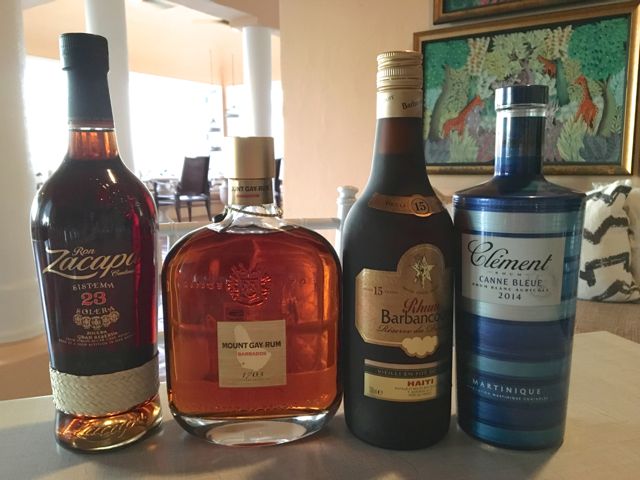
Mondays at the Malliouhana are for rum tasting! D and I arrived at the Sunset Bar at 530pm to learn more about rum… and a little more about Anguilla, too.
The sommelier (or “rummelier”, for this evening), Albert, had four rums to share with us. He also gave us some tips on tasting – quick, sharp sniffs to begin, then a first taste that coats the palate, followed by a second taste with some air sucked in.
We started with a white rum from Martinique – Clément Canne Bleue, 2014 vintage. Yes, apparently there is vintage rum! On first sip, it was hot with alcohol and fairly difficult to discern the flavors; Albert added a splash of water for our second taste, and it was amazing what a difference it made. He also gave us each a small ti punch to try, made with the same rum, to see how it tasted with lime and sugar syrup.
I was happy to move on to darker rums, since I find them easier (and more enjoyable) to drink.
First up was Rhum Barbancourt 15 Year from Haiti, with flavors of caramel and oak. This time, Albert added an ice cube to cool the rum, so that we could see the difference that temperature made.
Next, we had Zacapa 23 Year from Guatemala. I’d first tried it as a dessert pairing at Le Bernardin years ago, and actually have a bottle at home – it’s one of my favorites. Very smooth, slightly sweet, and all around delicious.
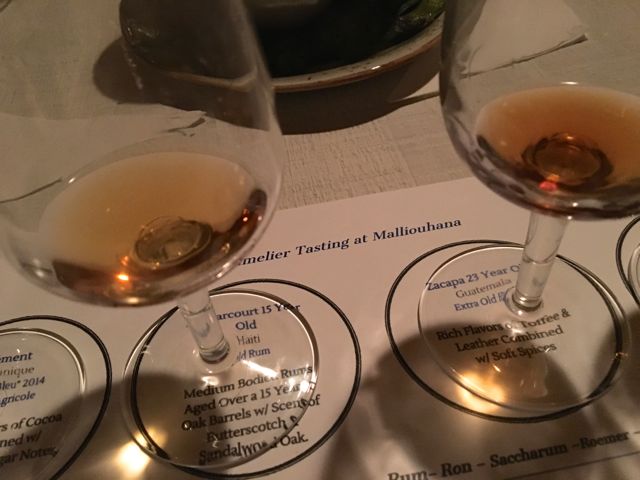
Our fourth rum was Mount Gay Ultra Old, from Barbados. It was sharper than the Zacapa, with more fruit and citrus notes, creating an interesting contrast.
Since we were the only ones doing the tasting that evening, we had the privilege of chatting with Albert for a while while sipping our rum. He told us a lot about the history of Anguilla as related to sugarcane and rum production – basically, the land wasn’t productive enough to be valuable to the British and slavery was not as significant as on other islands as a result. This led to several developments still visible today, including great pride in land ownership (many slaves earned their freedom and land, and passed it down through the generations), a sailing tradition driven by travel to other islands to work on the sugarcane plantations there, and a passion for sailboat racing that can be traced to rum smuggling days.
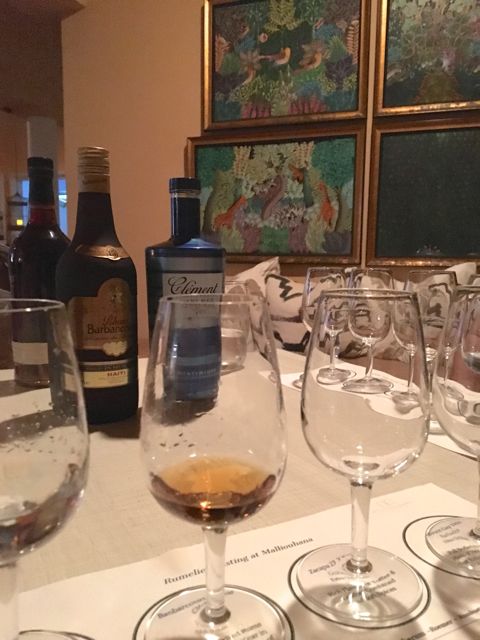
The rum was good – but the stories of Anguilla may have been even better!
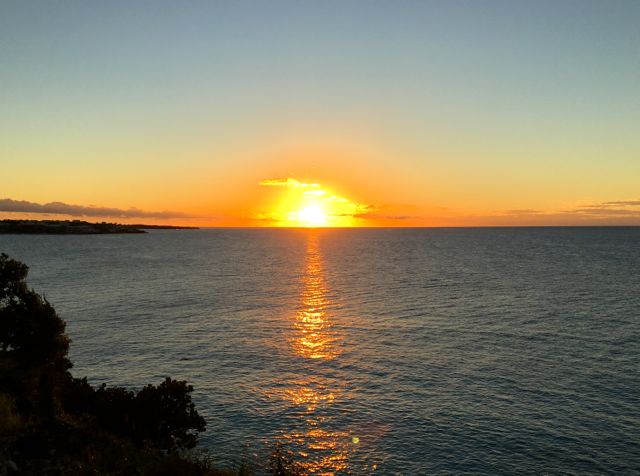
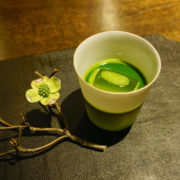 Gen Yamamoto cocktails, Tokyo
Gen Yamamoto cocktails, Tokyo Hop Sing Laundromat (and Penang), Philadelphia
Hop Sing Laundromat (and Penang), Philadelphia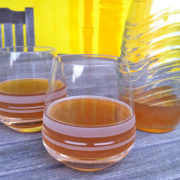 Dark & Stormy à la the Aviary
Dark & Stormy à la the Aviary Kitchen Table at the Aviary
Kitchen Table at the Aviary